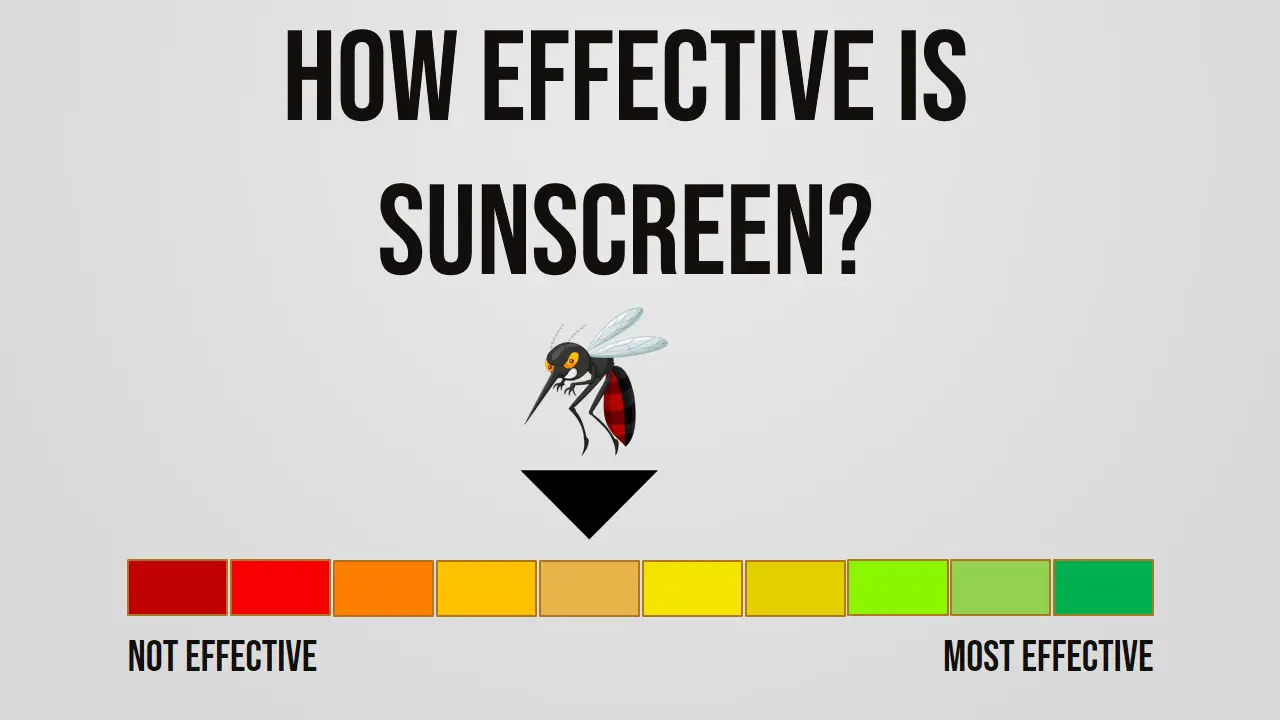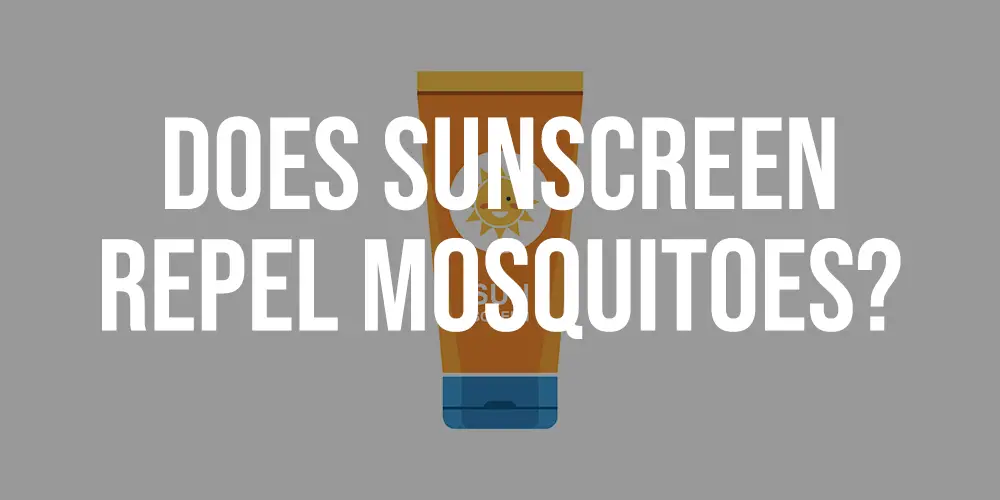Sunscreen does have many beneficial effects, including keeping the skin from burning and protecting it against harmful UV rays.
Many people also believe that sunscreen can help keep mosquitoes away.
Although there is no scientific evidence to support this claim, some people find that putting on sunscreen can make them less attractive to mosquitoes.
In general, however, applying sunscreen will not keep mosquitoes away completely.
If you are looking for an effective way to avoid mosquito bites, you should consider using insect repellent or even better natural citronella mosquito repellent bracelets, mosquito repellent patches, or mosquito repellent citronella incense sticks.
This will provide more reliable protection against mosquitoes and other biting insects.
There is no scientific evidence to support the claim that sunscreen can repel mosquitoes, but some people find that they are less attractive to these insects when they have applied it to their skin.
Many people prefer to wear insect repellent instead of relying solely on sunscreen, as this method provides more reliable protection against mosquito bites.
If you are concerned about mosquito bites and want to avoid them as much as possible, using a combination of sunscreen and insect repellent is likely your best option.
This will ensure that you stay safe from the risk of disease-carrying mosquitoes without having to deal with intense itching and irritation caused by bug bites.

Navigation
Can You Wear Bug Spray And Sunscreen At The Same Time
Yes, you can wear bug spray and sunscreen at the same time. In fact, it is recommended that you do so, especially if you are going to be spending a lot of time outdoors.
The combination of the two will help to protect you from both insects and the sun’s harmful rays. Some sunscreens even contain mosquito repellents to further protect you from these pests.
However, it is important to follow the directions on your products and read any warnings that may be included before using them. It is also a good idea to reapply both sunscreen and bug spray periodically throughout the day for maximum protection.
If you are concerned about sunscreen safety, you can also opt for natural alternatives to chemical-based products. For example, some people use essential oils or homemade recipes as a form of sunscreen protection.
Whatever your choice, just be sure to choose something that works for you and will provide the protection that you need.
If you have any other questions or concerns about wearing bug spray and sunscreen at the same time, be sure to speak with your healthcare provider for more information. Skin So Soft has been shown to repel mosquitoes.
How to Apply Sunscreen
Sunscreen is an important part of any skincare routine. Whether or not you’re going to be spending a lot of time outdoors, sunscreen helps to protect the skin from harmful UV rays which can damage the collagen and elastin that keeps your skin looking youthful.
There are two main types of sunscreen: physical sunscreens and chemical sunscreens. Physical sunscreens work by creating a barrier on the surface of the skin that reflects away UV rays. Chemical sunscreens, on the other hand, work by absorbing UV rays and turning them into heat which is then released from the body.
When choosing a sunscreen, it’s important to pick one that is appropriate for your skin type. If you have sensitive skin, for example, you’ll want to choose a physical sunscreen that contains ingredients like zinc oxide or titanium dioxide.
It’s also important to choose a sunscreen with an SPF (sun protection factor) of at least 30. The higher the SPF, the more protection you’ll have from UV rays.
To apply sunscreen, start by washing your face and preparing it for the sunscreen. Then, gently apply a thin layer of the sunscreen all over your face and neck, making sure to rub it in thoroughly so that there are no visible white streaks. Finally, take care to reapply throughout the day as needed to ensure that you’re getting adequate protection.
When applying sunscreen, be sure to avoid the sensitive areas around the eyes. If you do get sunscreen in your eyes, rinse it out immediately with cool water. And remember to always wear sunglasses and a hat whenever you’re spending time outdoors to further protect your skin from the sun’s harmful rays.
Sunscreen or Insect Repellent? Which Do You Wear When Hiking?
Sunscreen is a very important thing that hikers should wear. It protects your skin from harmful UV rays which can cause skin damage and even cancer.
Insect repellent is also important to protect yourself from pests like mosquitos or ticks. You need to decide which one you want to wear, but both are important for different reasons.
Is There Bug Repellent Sunscreen
When it comes to protecting your skin from the sun, you need to be sure that you are using a product that will not only provide adequate sun protection, but will also help to keep bugs and other pests away. Luckily, there are bug repellent sunscreens available that can do both!
When choosing a bug repellent sunscreen, it is important to look for a formula that contains ingredients like citronella and lemongrass, which are known to be highly effective at repelling bugs.
Additionally, you should seek out sunscreens with SPF ratings of at least 30 or higher to ensure that your skin is protected from harmful UV rays while spending time outdoors.
Citronella Sunscreen
Citronella Sunscreen uses the power of citronella to keep your skin protected from the sun. Citronella is a natural insect repellent, so this sunscreen will also keep bugs away. This makes it perfect for outdoor activities like camping, hiking, and picnics.
If you’re looking for a natural sunscreen that will keep you protected from the sun and bugs, look no further than Citronella Sunscreen.
Does Sunscreen Keep Mosquitoes Away?
Sunscreen may help keep mosquitoes away for a short period of time if it is applied frequently. Some sunscreens contain ingredients that are believed to repel mosquitoes, such as citronella or lemon eucalyptus oil.
However, there is no scientific data to support these claims and the effectiveness of sunscreen for this purpose is questionable. In addition, the ingredients in sunscreen may irritate the skin, which could make it more attractive to mosquitoes.
For these reasons, it is generally better to avoid using sunscreen and opt for other measures that are known to be effective against mosquitoes.
Some of the most effective methods for preventing mosquito bites include wearing long-sleeved clothing and using insect repellent.
Repellent should be applied to exposed skin whenever possible, and it should not be used on children under the age of two months. Additionally, there are a number of natural mosquito repellents that can be safely used, such as lemon eucalyptus oil and citronella candles or torches.
By taking these precautions, you can help reduce your risk of being bitten by a mosquito.

